Migrants says crossing Guatemala is one of the most difficult parts of the journey

Guatemala has become a route full of insecurity and uncertainty for migrants who travel through the country. Migrants increasingly face different forms of violence and abuse, such as extortion or threats. Médecins Sans Frontières has strengthened its response over the past two years to address their physical and mental health needs.
According to data from the National Statistics Institute, in 2023 there was an increase in the number of homicides in 118 municipalities (34.7 percent of the national total) compared to 2022. A concentration of homicides was also observed in the centre of the country and in municipalities bordering Honduras, El Salvador, and Mexico.
In recent years, MSF has observed a change in the profiles of migrants, with a greater presence of mothers, fathers and families with children, adolescents and elderly people overcoming innumerable difficulties and risks while seeking a better future. These risks include abuse, arbitrary detentions and inhumane economic sanctions that take away their dignity and well-being.
In 2023, the organisation documented more than 2,000 survivors of violence and more than 3,500 incidents of violence and rights violations in the country. For 274 people, incidents of extortion, persecution and gender-based violence were determining factors for leaving their countries.
Ricardo Torres, 34 years old; Diego Torres, 23 years old; Joannaly Briseño, 27 years old and Israel Angulo, 22 years old, from Venezuela

"Since we started our journey in the jungle we have been robbed and we have faced many difficulties. We have lived survival mode since we entered Panama, and when we arrive here [in Guatemala], it is the same. The journey has been exhausting, our legs have swollen, [there is] a lot of discomfort, burns and blisters. We faced the danger of death—there were homicides on the route and rapes. The nights have been long, because we have slept in the open, although we have received help along the way. We try to make friends to talk and make jokes to feel happy."
"We tell Guatemalans to be nice to us. Everyone is human and we are equal."
Beiker Peña, 8 years old, from Venezuela
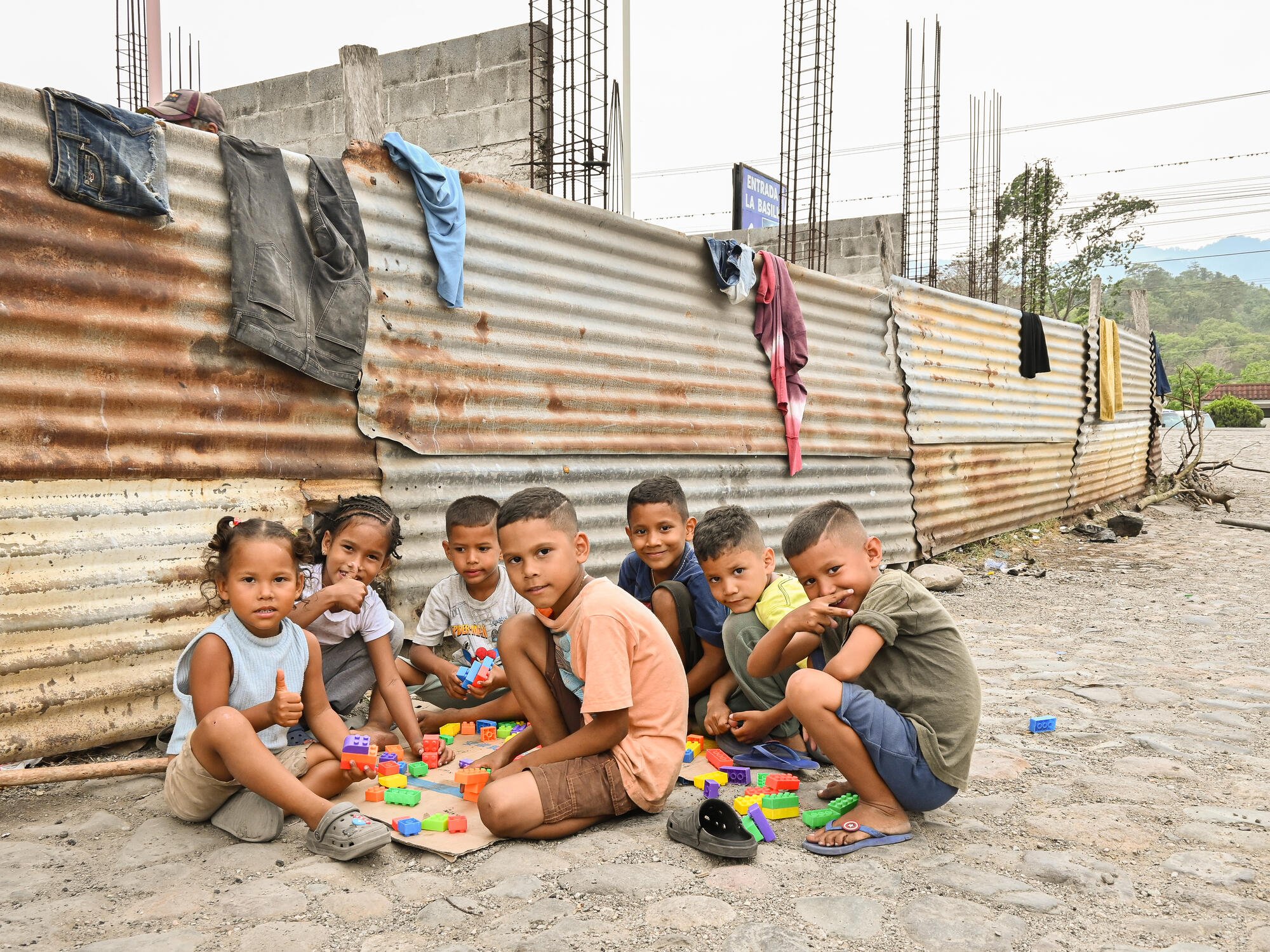
"I am 8 years old and my dream is to be someone in life. I am in third grade and I want to be a construction worker in the United States. On the way I have seen rivers and snakes. The trip in the jungle was bad; at night we heard sounds of people that would say 'ouch,' like someone's in pain. We spent five days in the jungle.
I have friends and we like to spend time together. I also dream that my sister will be someone in life and when we grow up we can help my mother.”
Ennys Acosta, 23 years old, from Venezuela

"I left the country on March 25, because I was in crisis. It has not been an easy journey, but with God's help everything is possible. I left through Necoclí, a part of Colombia, and the next day we managed to get into the jungle. It was not easy because it rained, and we had to camp in the mountains knowing that we had the risk of the rivers rising and being exposed to any animal. I am traveling with my dad, mom, two children and our pet. We are fighting for a better life."
Elián Marcano, 32 years old, from Venezuela
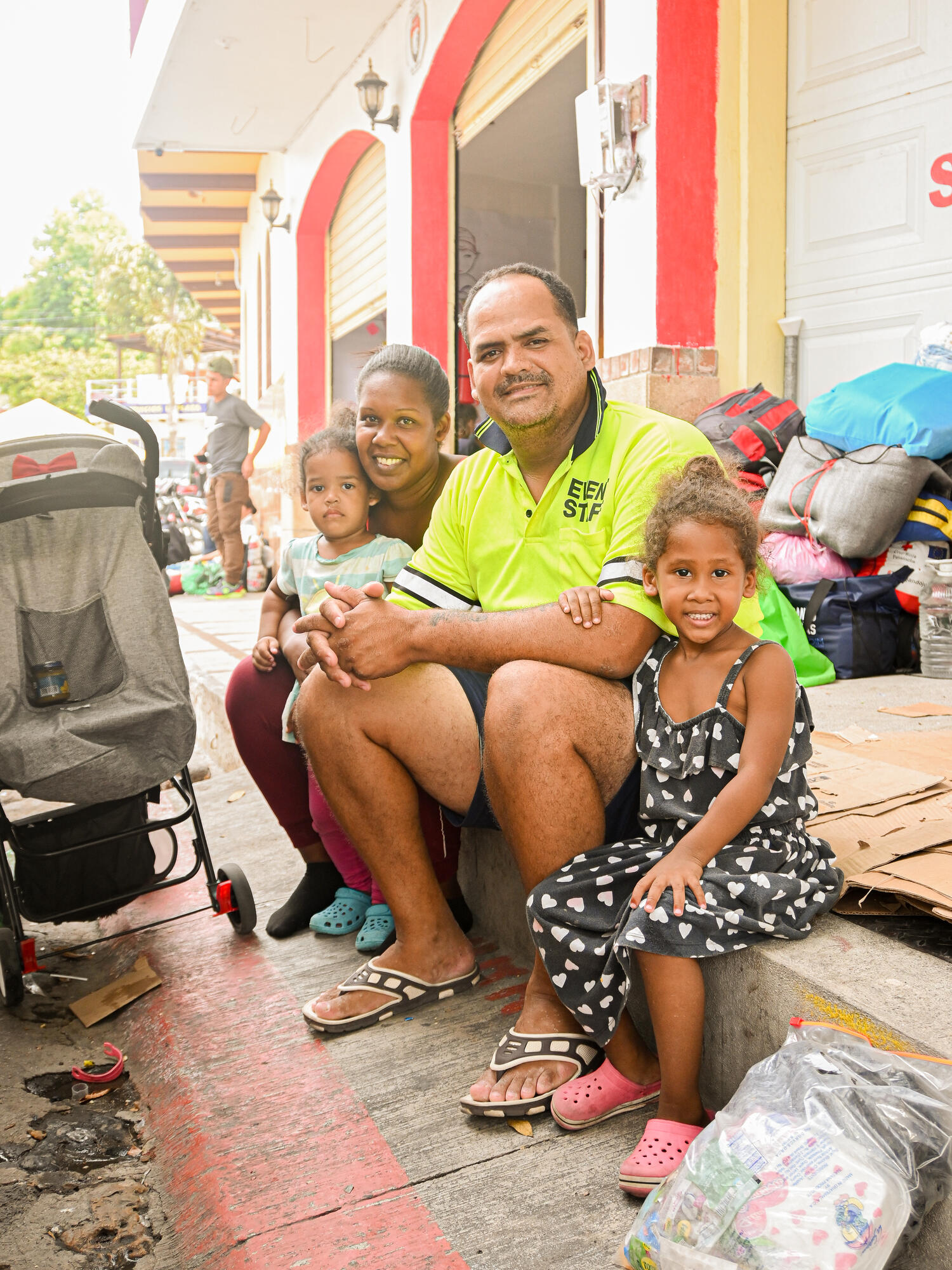
"We left with my family and on the way we had some health problems such as vomiting, diarrhea, swollen feet. The truth is, it’s difficult to leave one country and enter another, because everything is very fast. Now that we have entered Guatemala, I would like to keep moving forward to reach Mexico. My dream is to get to the United States, put my daughters in school and work to have a house and help my family. I would like people along the way to be kinder to those of us who migrate."
Rosendo Reyes, 55 years old, from Nicaragua
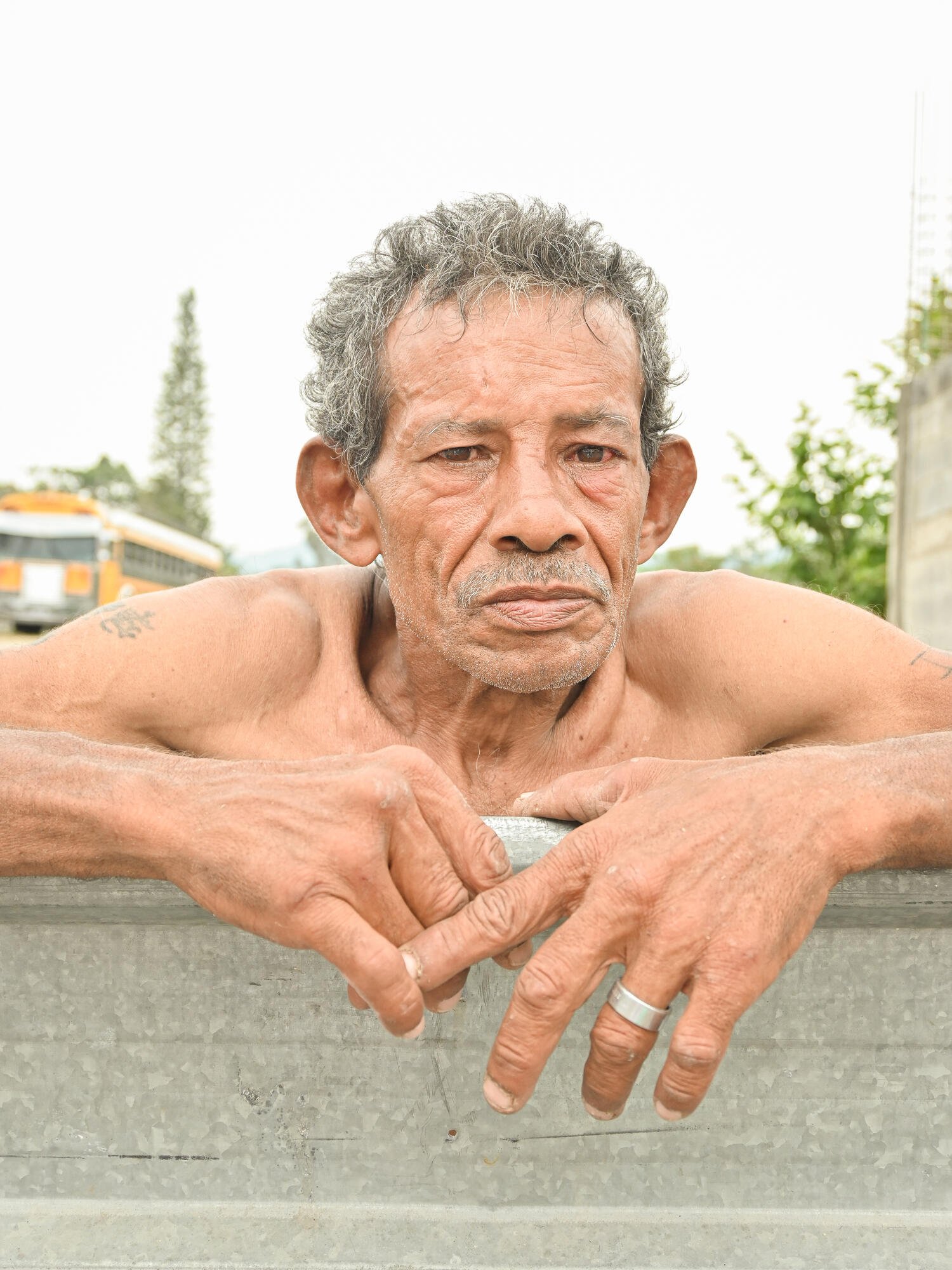
"I left Nicaragua because of the situation in the country. I am a painter and gardener. I have no family; I never married. I have been in Esquipulas for two months because I am working to make money. I have a vision problem and I need glasses to read. With my age, it is difficult for me to work, even if I have the ability.
My dream is to find a job and better myself. If I could communicate with my mom I would tell her that I am fine."
Victoria Aguirre, 35 years old, from Ecuador
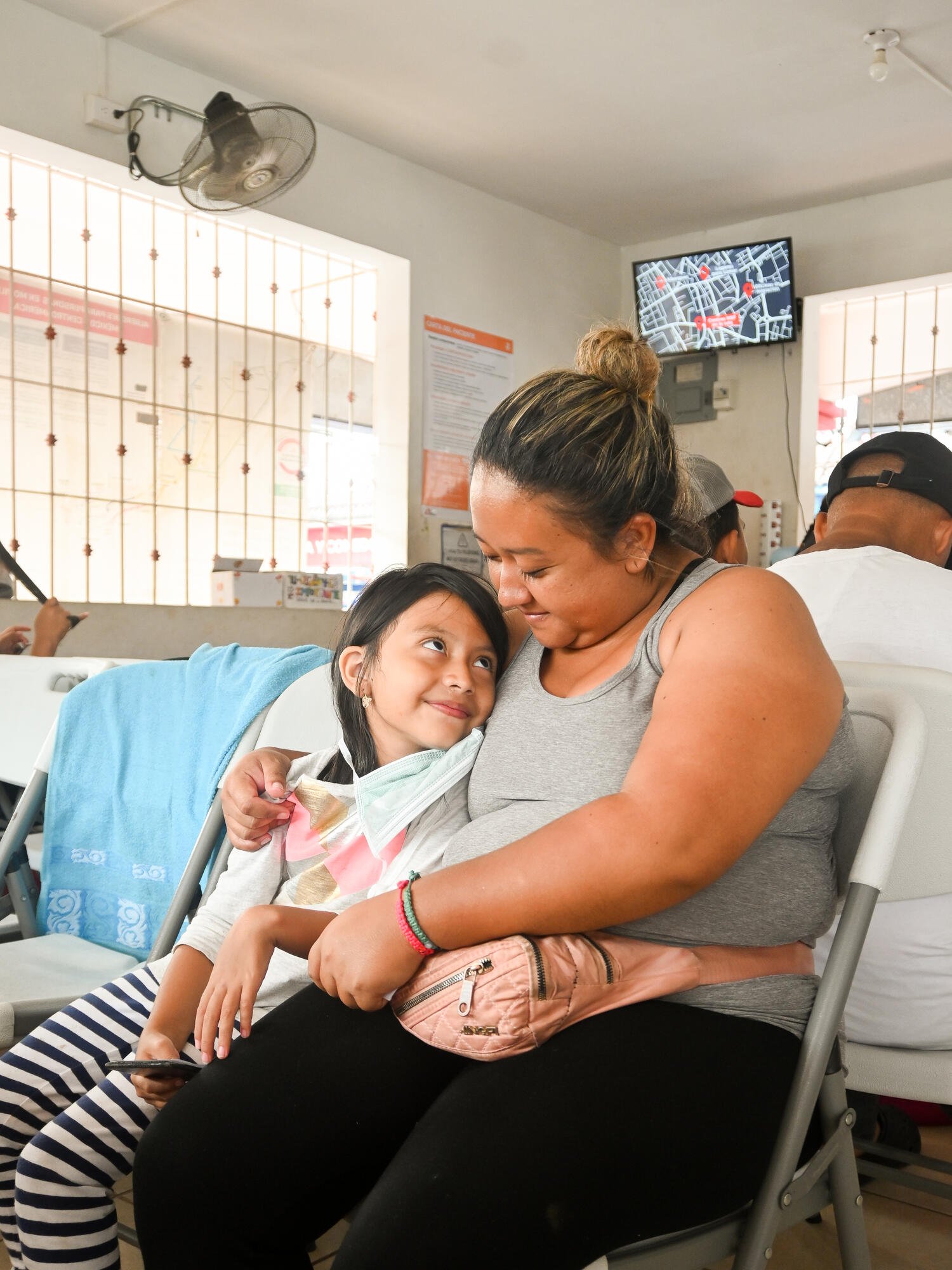
"Our journey was very hard. The Darién jungle is not a road, it is a jungle, but we managed to leave in three days. The journey through Central America has been difficult because of the extortions, although we have also encountered very noble people who have offered us help. Our bodies have started to get sick, but we have received medical attention."
Iris Ordoñez, Health Promoter
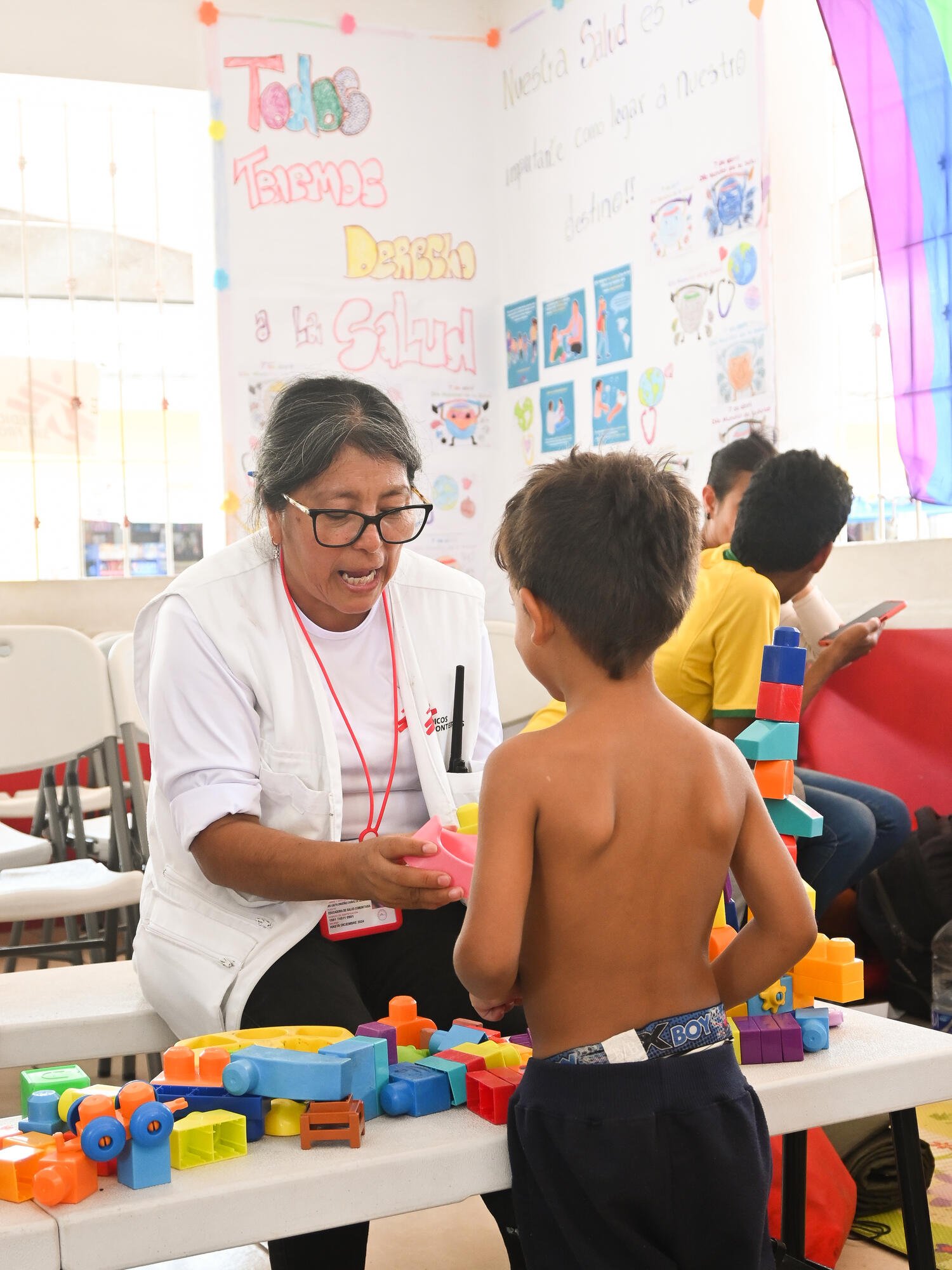
"I like to be able to help people on the move, because they face many health and personal hygiene challenges. That's why I provide information about Médecins Sans Frontières services. One day, a man told me that his wife and son had suffered violence on the road, and he expressed his helplessness at not being able to do anything at all. This kind of abuse, rapes and thefts make me think a lot, since these abuses happen here in Guatemala.
Seeing that people left their country, their family, their home, their life, makes me put myself in their place and I hope with all my heart that along the way they improve their situation."
Carmen López, Doctor
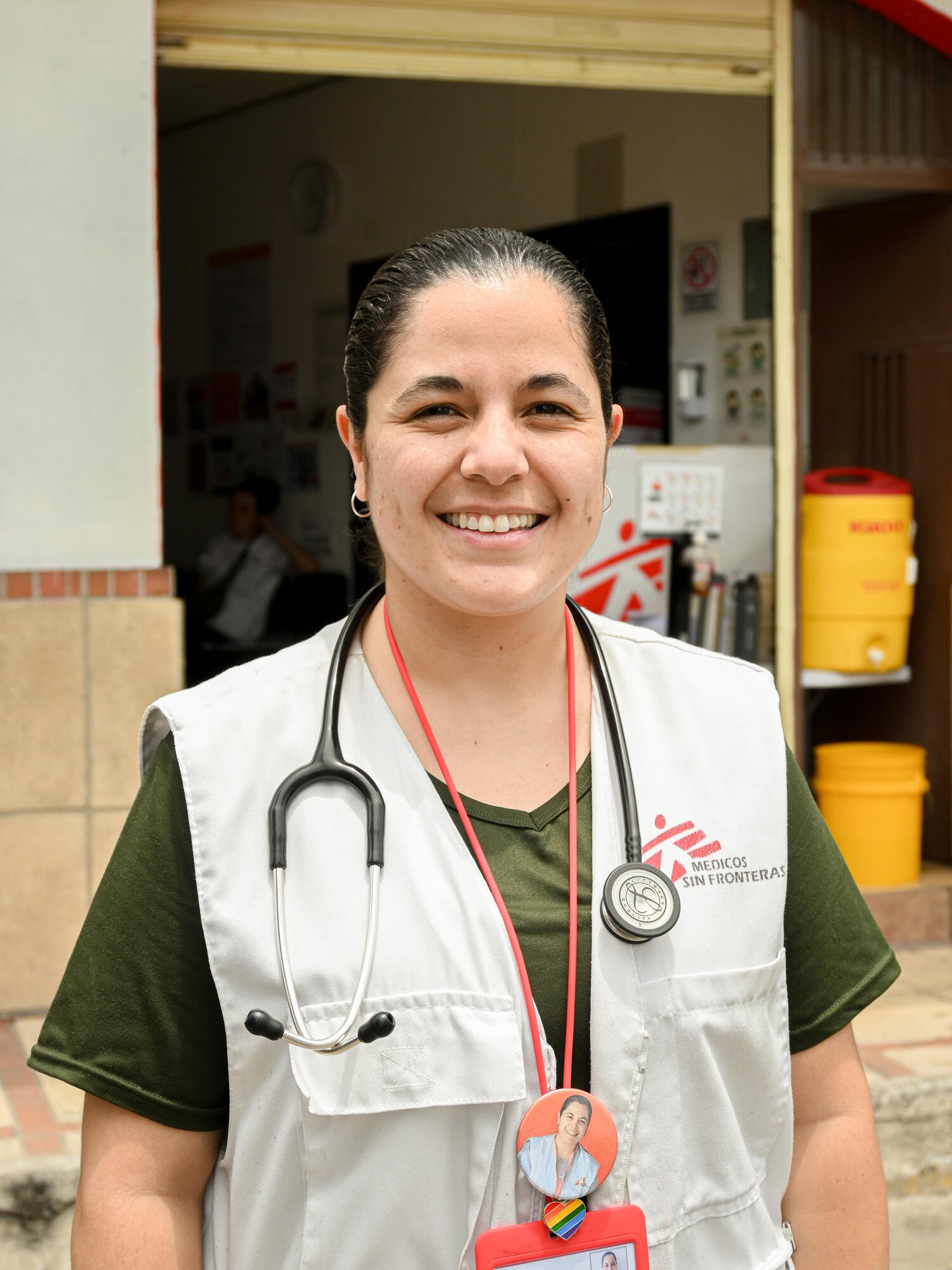
"In 2022, I started working with MSF on the migration project that opened on the Guatemala-Mexico border. My eyes were awakened to the dimension of the crisis that migrants experience on their journey to the United States. Every story I have heard from the people I serve on a daily basis tells of the endless difficulties, dangers, discomfort, limitations, inclement weather, accidents, tragedies, threats, robberies, extortion, deception, and different degrees of violence that they have suffered along the way and even before making the decision to migrate.
However, I admit that there is one thing that has struck me deeply from these stories: despite all the adversity, the hunger, the pain, the exhaustion, the fear, and the survival instinct, many people still stand in solidarity with others and go the extra mile to help others in need.
I would like for everyone to know how families migrate. We must be understanding, supportive and respectful with the migrant population. I would like for governments, civil society and non-governmental organisations to invest and collaborate to better respond to the migration crisis in the region; and that we remember that each person is a human being who deserves to be treated with dignity and with basic and undeniable rights, such as the right to life and health, which are violated when they do not have a dignified place to shelter, drinking water, sanitation, food, medical and mental health care, nor protection from those who assault them, rob them, threaten them or put them in danger, simply for seeking a better quality of life for themselves and their loved ones."
Emelin Arana, Social Worker
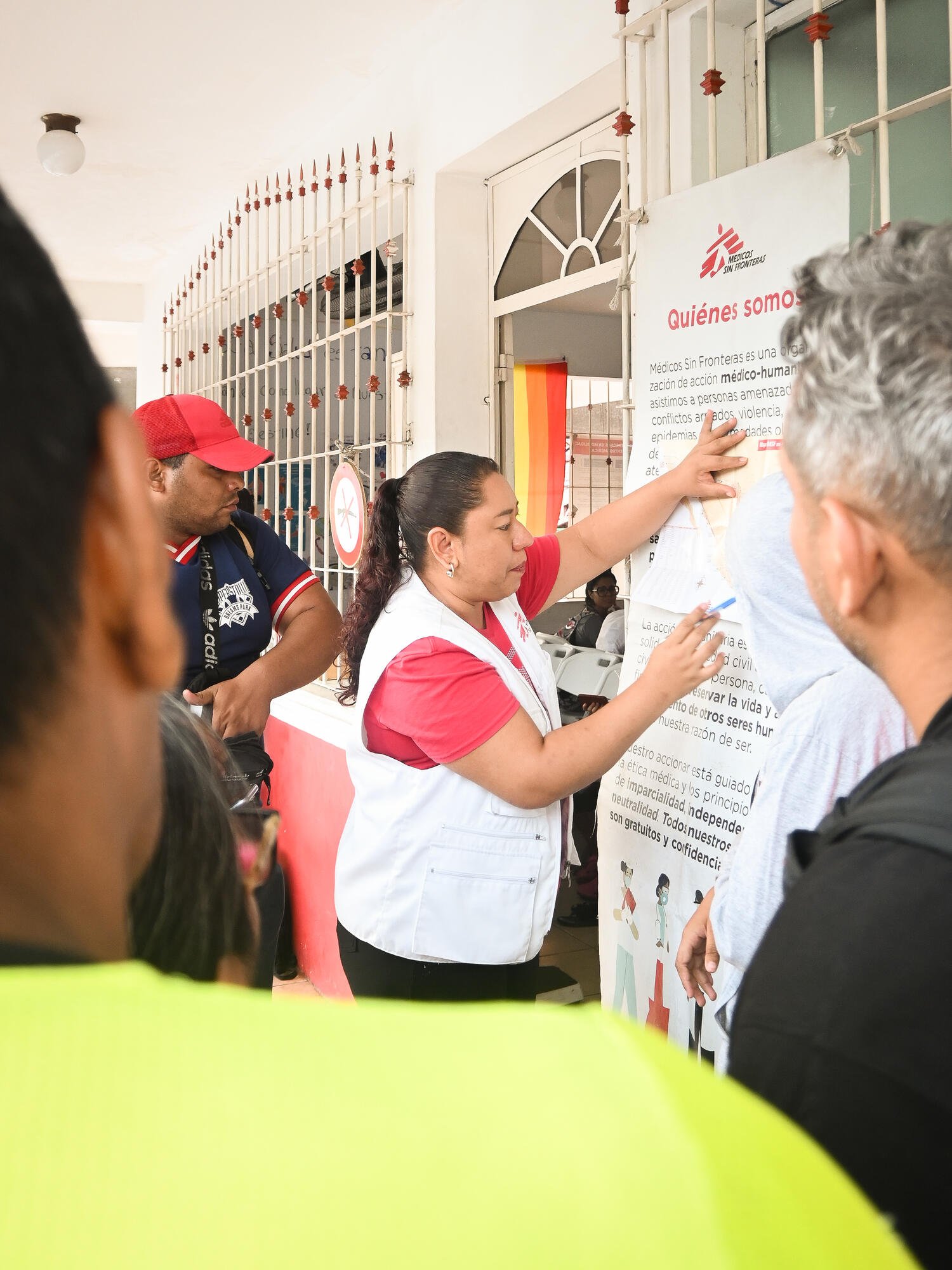
"Working with people in a migration situation awakens your human side because you have to protect the most vulnerable, because their rights and human dignity have been violated. In our team we are clear about one thing: we are there to provide dignity to people from each of our positions.. I have been struck by the vulnerability that children and adults face when confronted with challenges such as insecurity, hunger and lack of protection."
Every day, thousands of people flee from their homes in search of safety, only to face more violence and abuses along the way, a crisis that requires a global response. Médecins Sans Frontières calls on governments and authorities in transit countries to put in place mechanisms to end violence and abuses along migratory routes, as well as to guarantee the protection of migrants, with special attention to children and women who make up a large part of the migrants. Ensuring humanitarian assistance to all migrants is a right.





Leave a Comment